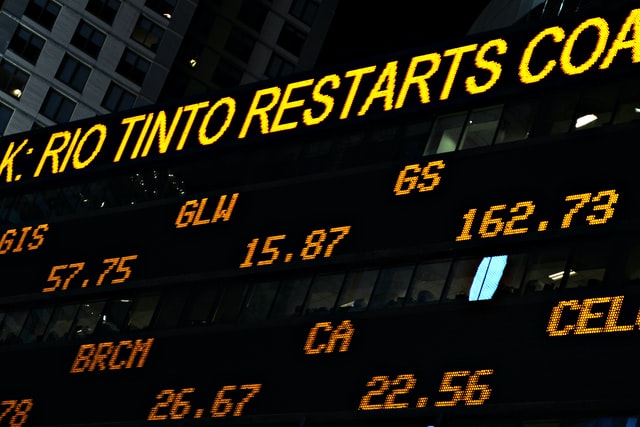The spread of the disease has a severe negative impact on travel stocks in the FTSE 100. However, as Omicron fears subside, these two could quickly bounce back into the new year and beyond.
The markets went into a tailspin as the pandemic began, with panic sweeping the world’s stock exchanges. The FTSE 100’s value plummeted from 7,404 points to 5,191 points in only a month.
Lockdowns, stranded planes, hotels closed to all but essential visitors, and restaurants shuttered for months at a time. FTSE 100 travel shares may have taken the biggest hit. It’s not difficult to see why. Over the past three months, UK citizens have been unable to leave their homes, let alone go elsewhere in the world.
Although concerns over the Omicron variant have somewhat faded, there is a second problem in the industry. Rising costs of living, including inflation, interest rates, taxes, and energy bills, are adding up for many people, making travel increasingly prohibitive.
Stocks may be in for a long-awaited resurgence; however, as vaccination rates rise and the UK approaches herd immunity, travel stocks might be on the verge of a comeback.
Fly with me on the FTSE 100
The parent company of British Airways and Iberia is International Consolidated Airlines (LON: IAG). In January 2020, the travel stock reached a high of 671p before declining 86% to 91p by October 2. It’s currently valued at 147p, however. As America’s airspace has reopened, this price point may represent excellent long-term value, mainly because many of its competitors have been driven out of business.
IAG’s financial difficulties are well-known. However, its third-quarter results indicate some silver linings to be found. Passenger capacity was 43.4% of Q3 2019, with Q4 capacity projected to be at 60% of 2019 levels. By the summer of 2022, it may be handling the same number of passengers as before the pandemic.
The number also grew to 7,000 in July 2019. And its quarterly operating loss plummeted by two-thirds while operating cash flow became positive for the first time since the epidemic began. Because it has €12.1 billion of liquidity, the firm may keep taking losses for a time. It does, however, expect to have a $3 billion deficit in full-year earnings. The time it takes to recover from a disaster fully might outstrip the company’s schedule. As remote working becomes more popular and leisure travellers become concerned about being trapped away, it may take longer than expected to return to normal. Of course, if the pandemic fades out in 2022, it may benefit from a resurgence of pent-up travel demand.
The finest stock in the travel business
The tale of Daedalus and his son Icarus, who used wings made out of bird feathers and wax to flee their imprisonment on Crete, is one of the most famous myths in Western literature. However, Icarus flew too near to the sun, causing the wax to melt and causing him to plummet into the Aegean Sea.
Rolls-Royce has been hit with the Icarus effect to some degree. Its share price peaked at 1,088p on August 3, 2018, as the firm spent hundreds of millions of pounds in dozens of firms that did not fall within its core business of aircraft engine manufacturing and repair.
The sun melting wax then dawned, and the pandemic hit like a hurricane. Its stock price, which had been steadily declining in value, plummeted to an untouchable low of 69p by November 6 2020.
Since then, it’s been ordered to sell off £2 billion worth of assets. As a result, it participated in a £2 billion disposals program. It has sold its civil nuclear business to Framatome, ITP Aero to Bain Capital, Bergen Engines to Langley Holdings, and its stake in AirTanker to Equitix to achieve this figure. By the end of 2021, the company expects to have eliminated 8,500 positions. It has refocused the travel stock, with CEO Warren East stating that Rolls-Royce is a ‘leaner and more efficient organisation.’
According to its website, the company has also recently secured two lucrative new contracts, with a value of $2.6 billion to provide and maintain engines to the US Air Force. The second is again outside of the firm’s core business; developing Small Nuclear Reactors, which received financial assistance from the UK government and Qatar’s sovereign wealth fund. They’ll generate 1.3 million homes with electricity, which is enough for about a third of the United Kingdom’s population (it was previously estimated at 20 percent). They’re also far less costly than the ageing big-scale nuclear reactors that the United Kingdom now uses for power, costing around £2 billion each.






More Stories
What are cryptocurrency exchange-traded funds?
Investing in bond ladder ETFs
How To Enter A Financial Market